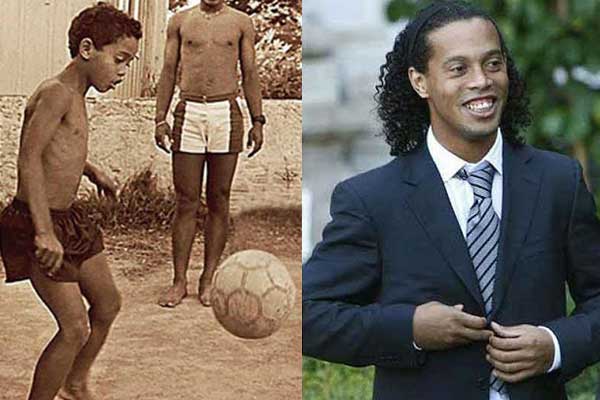Professional Soccer Player Sacrifices
The Sacrifices to Become a Professional Soccer Player
After watching a group of young soccer players at a park or playground for a few minutes, you will be able to point at the technically superior players. You would have a reason to suggest that such players could become “really good”. If you observe same set of players on another day, your initial thoughts may even be further strengthened. But you may not be right in your conclusions about their becoming professional players if you only observed them play.
It takes more than talent to become a professional soccer player. Some necessities include having the opportunity to play often, a capable trainer and a supportive family to provide material resources and to shore the player up emotionally. Some players may gain a scholarship that provides most of these in one package, while others may not be so lucky. Regardless of the circumstance, however, the only constant factor that will make professionals out of a young player is the personal sacrifices made. Without this, the dream of professional soccer does not come true.
The sacrifices to be made for a career in professional soccer come in different forms, requiring active physical and mental inputs from the aspiring player.
Routines and Repetition
In the early stages, an aspiring professional soccer player will have routines to stick to. These include rising times, training schedules, strict diet plans and drills. These activities could be boring or uneventful, creating the temptation to skip or adjust them at one’s own will. With frequent repetitions, a player may question the need to keep doing same thing over and again. But when adhered to, they are beneficial for building consistency and strengthening will power. Good coaches and teams with a proper structure will usually make room for some flexibility anyway.
Missing Out On Entertainment
Waking up early to attend training sessions may mean that a player goes to bed early at night. This would result in the player having to miss out on the fun social activities with friends like hangouts, parties, film nights and television. Some professional players have commented on being tagged ‘socially awkward’ by their friends in their development days because they would choose to retire early due to soccer. Thinking about the potential value that could come from finally making it as a professional should be convincing motivation to bear with the taunts of awkwardness. A young player should always remember that there is much fun to be had in practicing and playing soccer professionally.
Managing Pain
Many soccer players do not have long careers. It is a harsh reality that a young player has to try not to focus on but be prepared to handle, especially when injuries are sustained. When professional players have serious injuries, they are away from the sport for a while. They have to be patient in allowing their bodies to heal, and then find a way to regain fitness. Due to regular training, aspiring professionals may sustain sprains or strains that keep them out of the team. This can lead to moments of loneliness and depression, and depending on the extent of the injury, could see the player’s future prospects questioned by the coach and team administrators. But this is one period when a growing player can build up stores of mental strength.
Playing Out of Position
Young soccer players may have to play in different positions in their developmental years. A young player believes he is a central midfielder, but a coach may decide to play him at the right side of the defence. This could be dissatisfying but there are lessons to be learned in making this kind of sacrifice. One is versatility, whereby a player gains more than one skill set on the journey to becoming professional. Players who can play in more than one position are useful in professional set ups where injuries or suspensions can create a personnel shortage. The English soccer player, James Milner, is a shining example of a versatile player who began his professional career at 16 years. At 33, he continues to be a vital member of Liverpool, playing normally in midfield but also often in defence even when natural defenders are available for selection. The other benefit of learning to play in other positions in early years is acquiring the needed team ethic for success as a professional player.
Conclusion As glamorous as it may appear from the outside looking in, becoming a professional soccer player requires much effort and perseverance. There is definitely no reward without a certain degree of risk and consideration of the opportunity cost involved. Nevertheless, the extent to which one esteems this most prestigious athletic pursuit will invariably determine the level of willingness expended in order to realize what will undoubtedly be a fruitful outcome.
REFERENCES
Making sacrifices to be a professional soccer player
The making of a pro – the sacrifice
https://www.goal.com/en/news/8/main/2014/07/26/4984986/the-making-of-a-pro-the-sacrifice
Liverpool’s James Milner a model pro and enjoying his best season at Anfield



